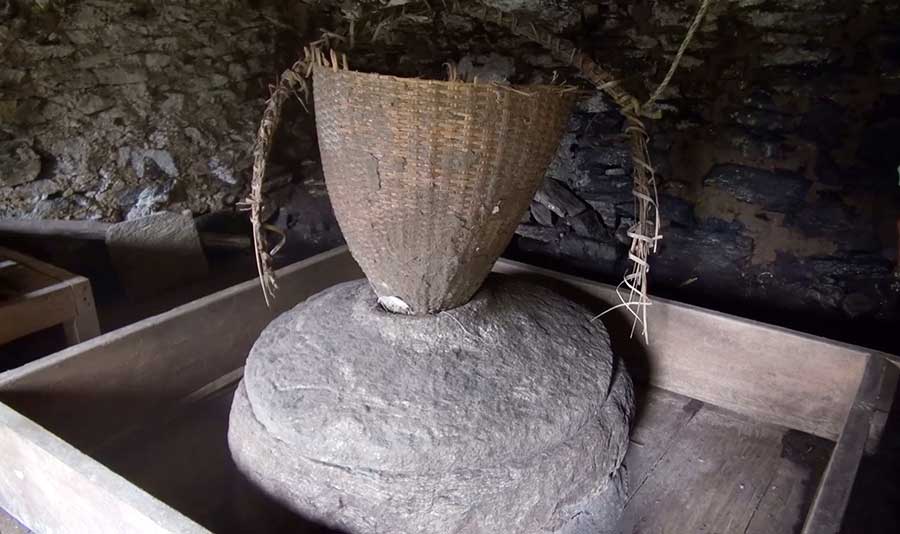
From growing wheat, buckwheat and barley as a staple diet, the residents of a village at Khatoed Gewog in Gasa changed their farming pattern and added rice to the list over the years. But there is one thing they haven’t changed. It is the way they pound or grind the grains. Considered a blessed asset with intangible values, the villagers still prefer the traditional watermill over the modern grinding machine. However, maintaining the watermill has become a challenge as it breaks down due to frequent attacks by wild animals.
Located below the Gasa Dzong, the Zhabdrung Phunsum Tshogpai watermill is said to be built by the ancestors of Chhogley residents. And the villagers believe that Zhabdrung Ngawang Namgyel consecrated the grinding machine in the 17th century.
It is run by Dethang stream which flows by the right side of the dzong.
However, they have not been able to use it for the last three months after it was damaged by bears.
 Although the residents lock the watermill when not in use, bears enter it by breaking the ceiling and window to eat flour and grains.
Although the residents lock the watermill when not in use, bears enter it by breaking the ceiling and window to eat flour and grains.
The machine only requires minor maintenance.
The gewog administration usually coordinates the repairing works by calling the gewog’s only expert who is busy this time with paddy harvesting.
“In the past, there were many people who could repair the watermill even if it got damaged. But over the years, those people died and younger generations do not know how to repair it. So, there are chances of losing the watermill if the Gewog Administration fails to coordinate the preservation of the watermill,” said Pema Dorji, a resident of Chhogley-Phulakha chiwog in Khatoed Gewog.
The villagers have a modern grinding machine in the gewog but most of them still prefer the watermill as they consider it a sacred artefact.
“It is believed that a person who tastes flour ground in this watermill will be able to escape the sufferings after death. So, leaving this asset unattended is like losing a sacred artefact which was in existence since Zhabdrung arrived in the country,” added Pema Dorji.
“Most of the time I grind my grains in the watermill. I visit the machine only when the watermill is damaged. Using the watermill is more convenient and even the flour tastes better compared to the one ground in the machine,” said Namgay Dem, another resident of the chiwog.
“It is like we have nothing if we don’t have this watermill. We cannot grind our flours which is necessary while performing rituals at home. Flours ground in the traditional watermill are considered best for making ritual cakes,” said Passang, another resident of the chiwog.
At a time, when everyone is adopting technology, theirs is a conflict between embracing change and preserving what they consider sacred and a blessed cultural asset. And only time will tell how long they will be able to keep the culture alive. But for now, the villagers will have to wait for some time as the village expert plans to repair the watermill after the paddy harvesting season.
Changa Dorji, Gasa
Edited by Phub Gyem








